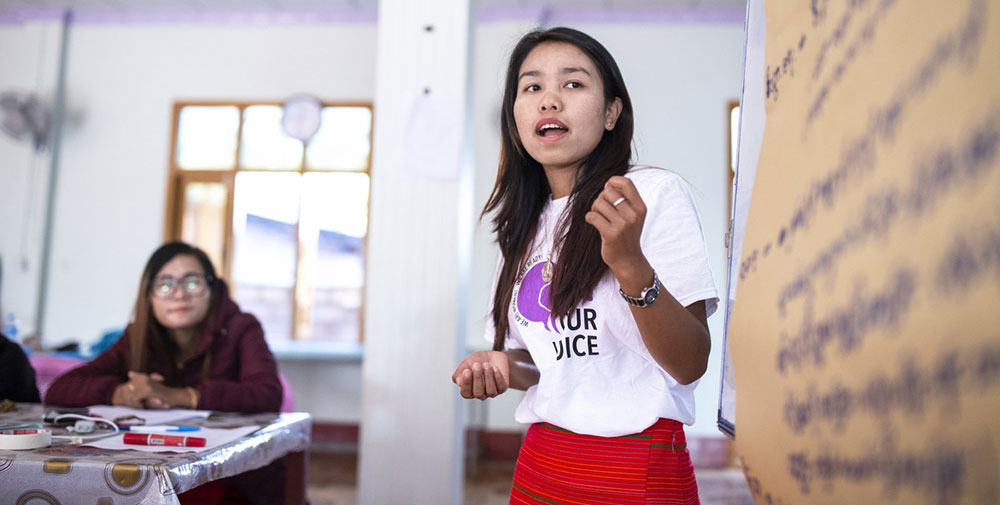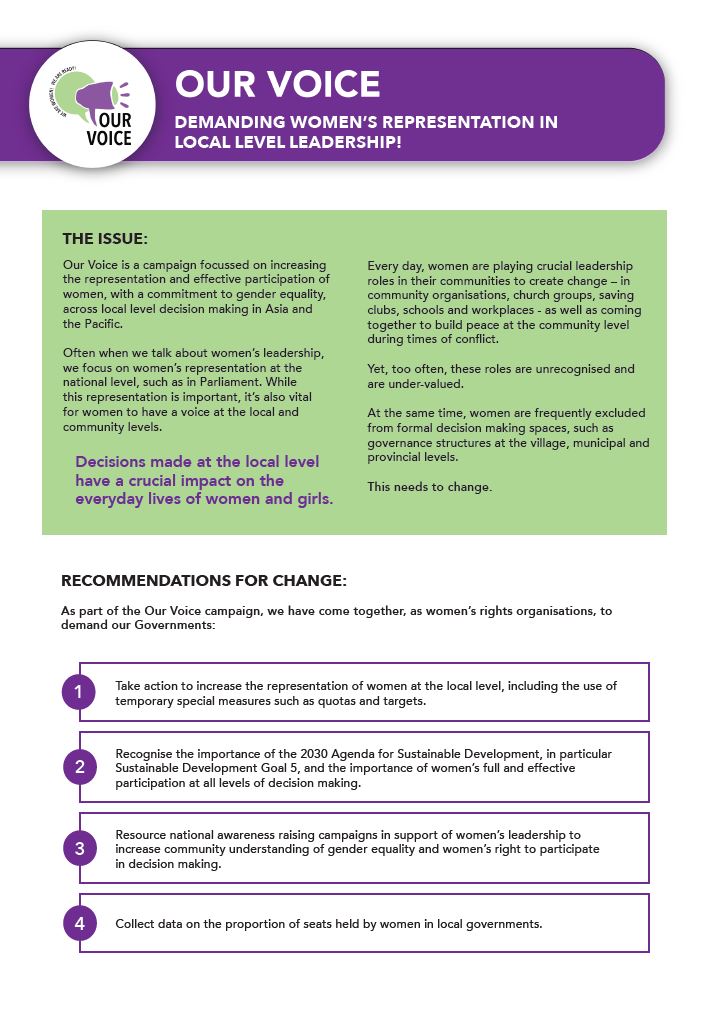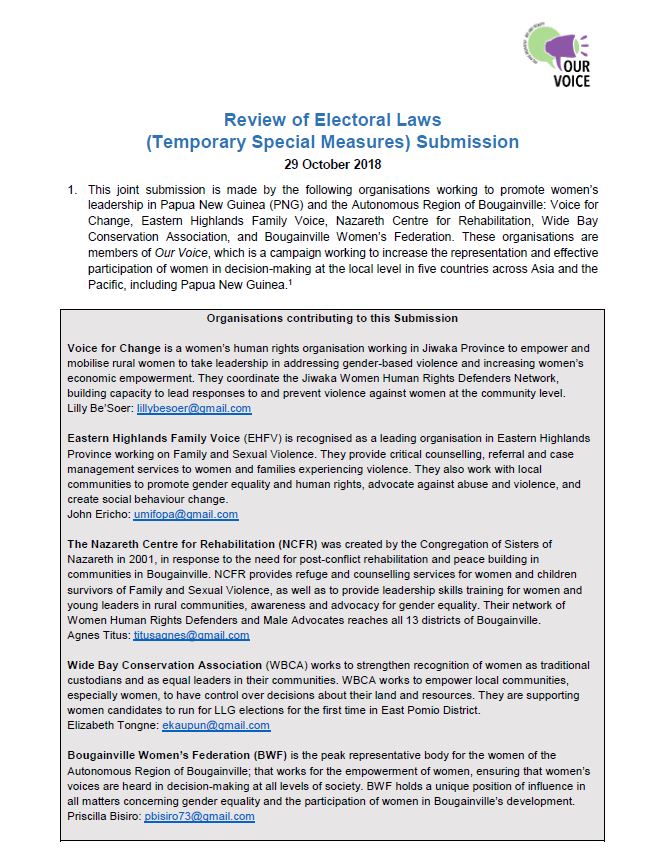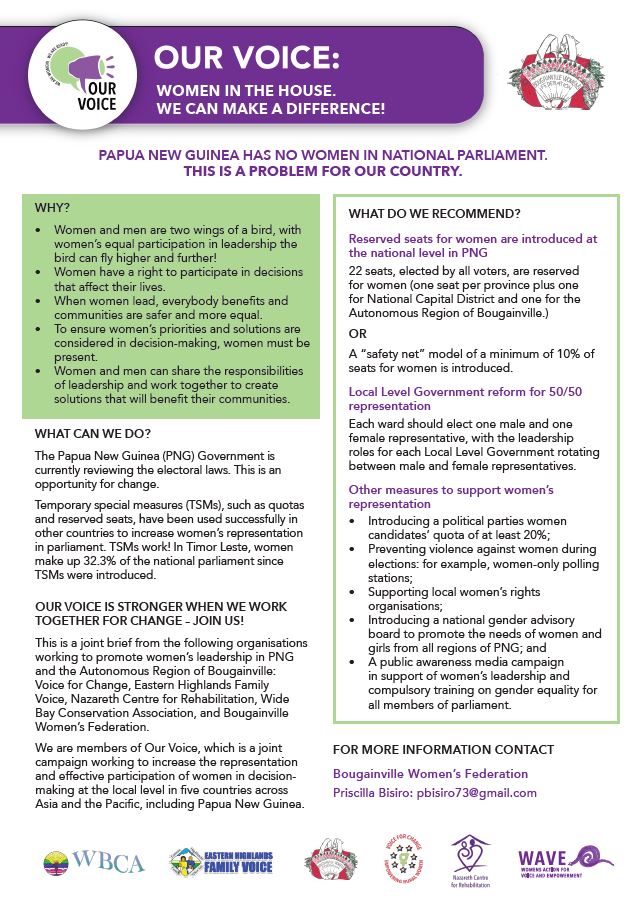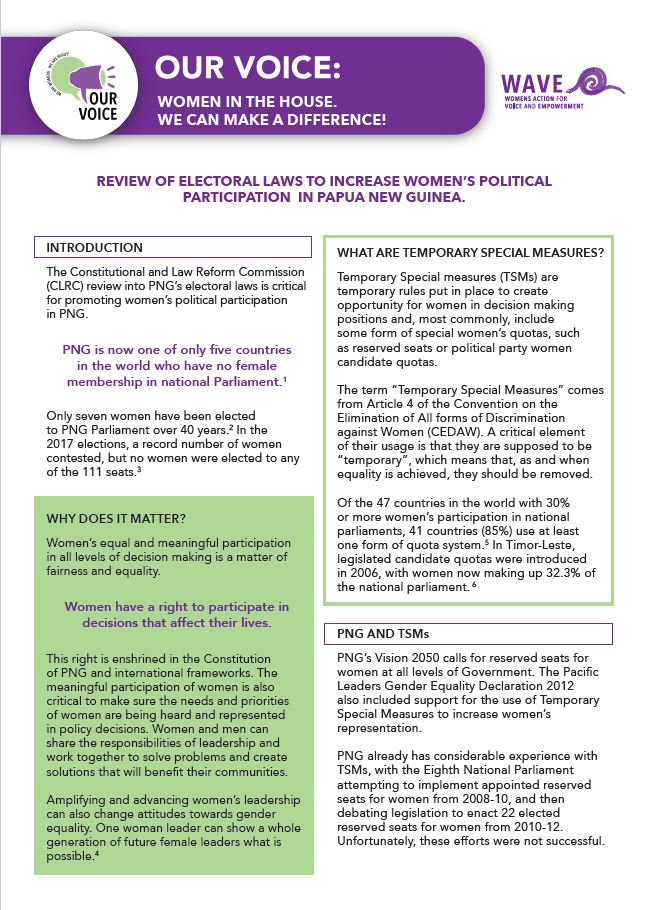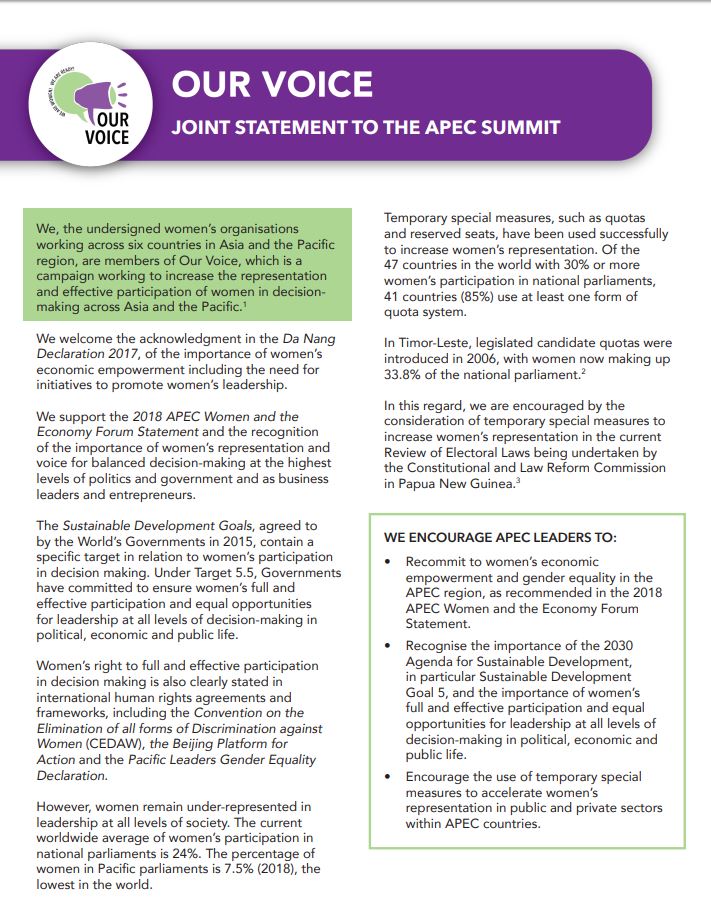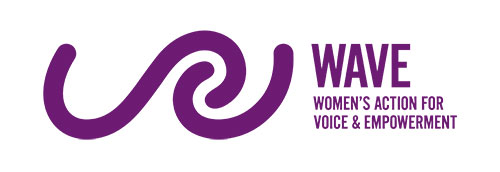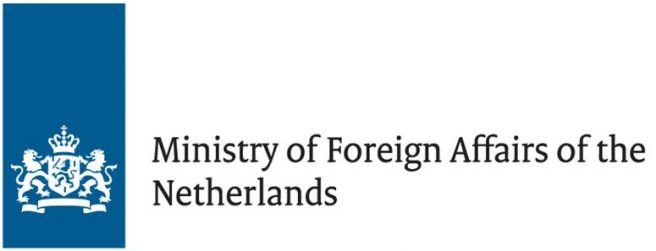Our Voice
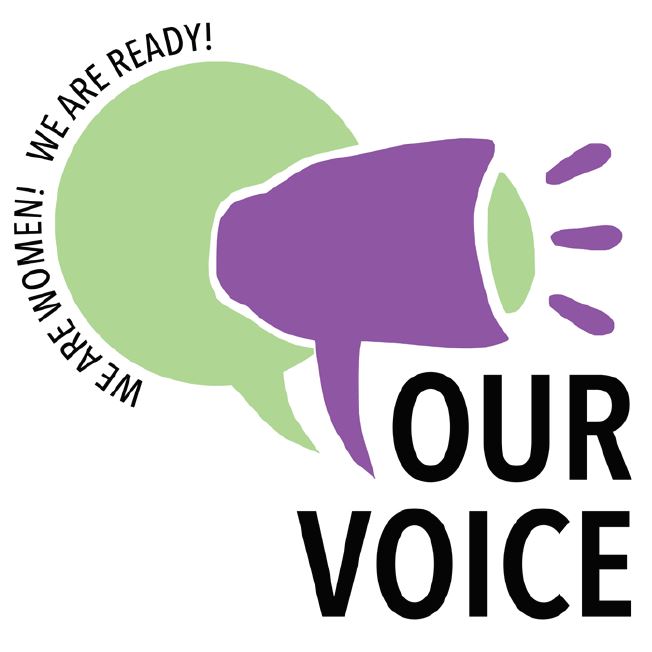
We are stronger when we work together.
Our Voice is a joint advocacy campaign working to increase the representation and effective participation of women, with a broad commitment to gender equality and women’s rights, in decision-making at all local levels across Asia and the Pacific.
Launched on International Women’s Day in 2018, the Our Voice campaign is led by partners of IWDA’s Women’s Action for Voice and Empowerment (WAVE) program.
Current Actions
International Women’s Day 2019
This International Women’s Day, join Our Voice and join the call to recognise women’s leadership at the local level.
Temporary Special Measures (TSMs)
In November 2018, the Review of Electoral Laws Submission (Temporary Special Measures) was submitted to the Papua New Guinea Constitutional and Law Reform Commission by Voice for Change, Eastern Highlands Family Voice, Nazareth Centre for Rehabilitation, Wide Bay Conservation Association, and Bougainville Women’s Federation.
Why does women’s leadership at the local level matter?
Often when we talk about women’s leadership, it’s to discuss women’s representation at the national level, such as in parliaments. While this representation is important, it’s also vital for women to have a voice at the local and community levels.
Decisions made at the local level, including state, provincial district and village levels, have a crucial impact on the everyday lives of women and girls.
When we talk about increasing the representation of women in decision-making, we are not just talking about increasing the numbers of women. Women must be able to put forward their priorities, opinions and experiences in order to have influence over decision-making. This is why we use the terms ‘participation and influence.’
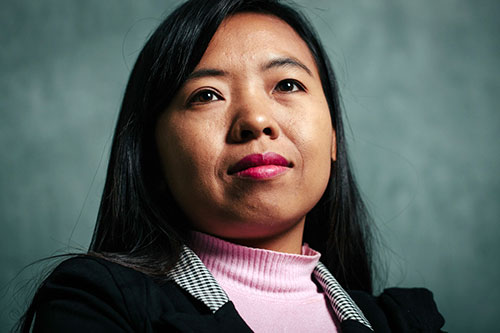
“You can’t only change the government system you have to change the whole society.”
– Lway Moe Kham, Ta’ang Women’s Organisation (TWO)
How can Our Voice create change?
Change is possible, but requires political commitment. The work of WAVE partners in Solomon Islands, Papua New Guinea, Myanmar, Cambodia and Timor Leste, together with global and regional evidence, identifies a number of key areas which can be prioritised to support women leaders at all levels.
1. Tackle discriminatory social norms
Supporting women’s leadership requires tackling discriminatory social norms including restrictions on women’s freedom of movement, unpaid caring responsibilities, acceptance of violence against women and other discriminatory perceptions that women are not suitable leaders. This requires a long-term approach that involves working with women and men of all ages. Male leaders can play an important role in supporting women’s leadership including by challenging gender inequality in their communities.
2. Advocate for Temporary Special Measures
Temporary Special Measures (TSMs) are temporary rules put in place to create opportunity for women in decision making positions. These can include mechanisms such as quotas, reserved seats and targets.
Increasing the numbers of women can positively impact attitudes on the value of women’s leadership. Research has also shown that unless women make up at least one quarter to one third of a body’s membership, their meaningful participation can be limited.
Quotas alone do not guarantee increased influence for women or increased focus on women’s priorities. It is crucial that TSMs form part of a broader, comprehensive approach.
3. Support and resource women’s rights organisations
Women’s rights organisations play a key role in supporting women to develop the skills, knowledge, networks and confidence to take on leadership roles and to meaningfully participate in and influence leadership spaces.
They provide a way to reach marginalised women, including women with disabilities, rural, indigenous, elderly, ethnic minority and widowed women. Local women’s organisations also understand the challenges facing women, which shape their leadership opportunities and can provide support to women throughout their leadership journeys.
4. Support local level leadership
It is important that women’s participation and influence at local and community levels is also prioritised for collecting data, evidence of what works, and promoting the importance of women’s leadership. This must also include support for young women’s leadership in both formal and informal roles.
5. Provide sustained support throughout the electoral cycle
The experiences of WAVE partners demonstrate the importance of providing support to women throughout the entire election cycle – that is before, during and after elections. This support must include working with political parties to reform party policies, procedures and structures such as introducing gender quotas for candidate selection.
Once elected, female parliamentarians need continued support to navigate male-dominated spaces and to effectively advocate for change in support of women’s rights. Support models that have proved effective include mentoring, coaching and women’s parliamentary caucuses


